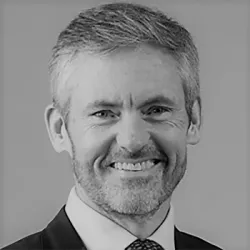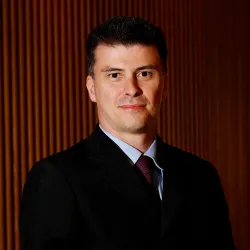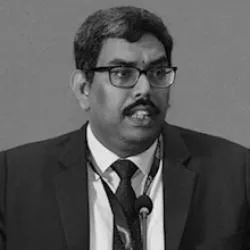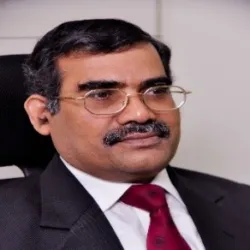Agenda
Agenda
Agenda
13:30 – 13:55
FinTech's foundations and frameworks
13:30 - 14:55
13:30 – 13:55
5 FinTech questions central bankers and supervisors need to answer
01:30 - 01:55
14:00 – 14:25
DLT and Blockchain: new opportunities in cross-border transactions and data management
02:00 - 02:25
- What is the state of the art of the DLT technology?
- What are the new applications on data management and analysis?
- What are the emerging opportunities in national and cross-border payments and settlements?
- How to identify and manage operational, legal and ethical risks?
Scott Hendry was appointed senior director Financial Technology (FinTech) in the Funds Management and Banking Department (FBD) of the Bank of Canada in June 2016. In this role, he oversees the Bank’s efforts to monitor and research developments and implications of new technologies affecting the financial sector. He previously held the role of Director of Research for FBD and, before that, for the Financial Markets Department (FMD). His personal research has focused on electronic money, price discovery in the Canadian government bond market, and central bank communication. He has a PhD in Economics from the University of Western Ontario.
14:30 – 14:55
Cloud: the emerging source of financial market innovation
02:30 - 02:55
- What is the state of the art of cloud computing?
- What are its technological foundations and building blocks?
- What are the key applications in the central banking and supervisory environment?
- What does it take to effectively manage limitations and potential legal and security risks?
Aleksi Grym is head of fintech at the Bank of Finland. He leads a team that manages a portfolio of projects related to fintech, new payment technologies and digital currencies. He is a member of the Eurosystem's digital euro project steering group. Before joining the Finnish central bank he worked in the consulting and technology investment industry for 15 years in London and Helsinki.
11:00 – 11:25
Accelerating Innovation in RegTech & SupTech
11:00 - 12:55
11:00 – 11:25
RiskTech: what are the new applications in central banking and supervision?
11:00 - 11:25
- What are the building blocks of the risk management technology?
- What are the features of effective resilience strategies?
- What does it take to manage and effectively combine the new tools based around Blockchain, Cloud and Machine Learning?
- What is the role of public-private cooperation and coordination?
Dirk Broeders is a Senior Financial Risk Manager at the Financial Markets Division of De Nederlandsche Bank and a Full Professor of Finance at the School of Business and Economics of Maastricht University. He served as a Fellow at the Financial Stability Institute of the Bank for International Settlements and is a former Executive Member of the International Organisation of Pension Supervisors. He has published widely on finance and obtained his Ph.D. from Tilburg University.
11:30 – 11:55
Big Data and Machine Learning: new applications in central banking and supervision
11:30 - 11:55
- What are the emerging trends in the applications of the “regulatory Big Data”?
- How to make the most of it in supervisory, risk assessment and stress-testing efforts?
- How to effectively manage and combine statistics from the internet, administrative and commercial sources?
- What infrastructure investments does it require?
12:00 – 12:25
Case study: Using Google search data for nowcasting macro-economic indicators
12:00 - 12:25
Per Nymand-Andersen has over 25 years of Central Banking Experiences and was part of creating and developing the European Central Bank from scratch. Per has developed his expertise in banking and financial markets, fintech, data science, communications, securities settlement systems, statistics and Management.
Per holds several Fintech/data science Advisor Board positions in private and simi-public organisations. Per is a Lecture at Goethe-Universität Frankfurt and is a frequent speaker at international events and author of several publications/articles regarding financial markets, data science, communication and statistics. His recent renown book “Data science in Economics and Finance for Decision Makers” was published by Riskbooks.com.
Prior to joining the ECB, he provided market research consultancy services for the European Commission, Luxembourg.
Per has an MBA in Economics and Management Science from Copenhagen Business School, Denmark and has a Fintech certificate from Harvard University.
Per speaks four languages (English, German, French and Danish).
Further details: https://www.linkedin.com/in/per-nymand-andersen-81609913
12:30 – 12:55
Sustainable and Inclusive Innovation
12:30 - 13:55
12:30 – 12:55
Next generation regulatory reporting: data on demand
12:30 - 12:55
- What are the emerging trends in financial supervision?
- What challenges do these pose for data quality, resourcing, timing, and management?
- In which areas do approaches such as Granular Data and Data Pull provide added value to the regulator and the regulated?
- What are the key features of next generation financial supervision?
Ryan Flood joined Vizor in 2004, and over the course of the following 16 years, he has been instrumental in the design and development of the Vizor suite of SupTech and RegTech products. He has spent significant time on-site with leading financial supervisors across the world where he has taken a lead role in the design and implementation of solution landscapes.
In his current role as CTO, Ryan is active in various regulatory communities and heads up the company’s Product Design function ensuring Vizor products deliver the optimal user experience and value. Being a member of the Vizor innovation team Ryan, continuously innovates and evaluates new technology tools and trends for the company and the community we serve. He holds a BSc in Mathematical Sciences and Computing from University of Limerick and an MSc in Computer Science from and University College Dublin.
13:00 – 13:25
Inclusive innovation: understanding central banks’ initiatives
01:00 - 01:25
- What does it take to ensure that Financial Inclusion benefits from disruptive technological innovation?
- What are the responsibilities of the regulator in the effective management of technology delivery?
- To what extent should FinTech be incorporated into national and international Financial Inclusion strategies?
- What is the role of public-private coordination?
Aristides Cavalcante Neto
Chief of cybersecurity and technological innovation office
Central Bank of Brazil
Bachelor of Science in Computing and Master of Business Administration, Mr. Cavalcante works at Central Bank of Brazil for 22 years. He is Deputy Head of the IT department and Chief of Cybersecurity and Technological Innovation Office. He is in charge of fostering and collaborating in initiatives related to cybersecurity and technological innovation in the Brazilian financial system, like Distributed Ledger Technology (DTL), Open Banking and Regulatory Sandbox.
13:30 – 13:55
What is the role of central bankers and supervisors in sustainable innovation?
01:30 - 01:55
- What are the building blocks of a sustainable and inclusive innovation?
- What does it take to build a resilient FinTech ecosystem?
- How to develop a digital culture in a central bank?
- How to effectively digitalise business processes?
Julapa Jagtiani joined the Federal Reserve Bank of Philadelphia as a special advisor in the Supervision, Regulation, and Credit Department in 2008. In this role, she has conducted research and participated in or led several supervisory policy and implementation projects, including CCAR stress testing, recovery and resolution plans, and Basel II qualification reviews for large and complex financial institutions, with a focus on the use of quantitative methods and models for risk management. She is also a fellow member of the Wharton Financial Institutions Center and a Central Bank Research Fellow at the Bank for International Settlements. A career highlight has been contributing to the discussion around the potential impacts of fintech and considerations for shaping future fintech regulations that protect consumers and encourage innovation.
Previously, Jagtiani was a senior economist at the Federal Reserve Banks of Kansas City and Chicago. Before joining the Federal Reserve System in 1998, she was associate professor of finance at Baruch College and assistant professor of finance at Syracuse University.
Jagtiani has made significant contributions in the fields of financial institutions, financial markets, and bank supervision and regulation. She publishes research in top finance journals, organizes conferences to connect regulators with academics and industry leaders, and is a frequent speaker at conferences and forums. Her research areas include banking policy-related issues, including too big to fail, systemic risk and financial stability, Basel II capital regulations, mergers and acquisitions, mortgages and home equity issues, and credit risk models and management. Her more recent research has focused on issues related to fintech, use of alternative data and AI/ML in credit decisions, small business lending, and community bank mergers.
Jagtiani has been active in the community and has served on the board of directors and finance committees at various organizations, including the Leadership Council Board of Directors for the American Red Cross, the Center for Practical Bioethics, and the Parents Council at Johns Hopkins University; she also belongs to the Union League of Philadelphia. Jagtiani has a Ph.D. in finance and an M.B.A. from New York University’s Stern School of Business, where she held the Rockefeller Foundation Fellowship.
Bank of Japan (Mar 2003 - current), served as the Head of FinTech Center, Head of Foreign Exchange Division, Chief Representative in Hong Kong and also took a role of Director in the Financial Markets or the Financial System and Bank Examination Department.
Prior to joining Bank of Japan, worked as a trader or a sales in JPMorgan/Chase/Chemical bank group covering the foreign exchange, interest rates, bonds and derivatives markets, and subsequently at RPTech, an independent think tank, as a director.
She received an MBA from the Wharton School, University of Pennsylvania and an LL.B from Kyoto University.
外資系銀行(ケミカル銀行グループ<現JPモルガン>)、金融シンクタンク(リサーチアンドプライシングテクノロジー株式会社)を経て、2003年日本銀行入行。金融市場局(金融市場調査・外国為替平衡操作)、金融機構局(金融機関考査)、香港事務所長、高知支店長などを経て、2017年3月より決済機構局FinTechセンター長。京都大学法学部、ペンシルバニア大学ウォートン校(MBA)卒。
Marlies Stubits-Weidinger
Special envoy for international financial institutions & sustainable finance
National Bank of Austria
Ms. Marlies Stubits-Weidinger is a trained lawyer, also holds a degree in Political Science from the University of Vienna as well as a Master of Science and an MBA from Sigmund Freud Private University in Vienna. Several times in her career she was appointed as Chief of Staff of members of the Austrian Federal Government and a Regional Government, including in the Cabinet of the Austrian Federal Chancellor Werner Faymann. From 2013 until end 2018 she served as Ambassador of Austria to the OECD in Paris.
Her professional home base is the Austrian Central Bank, where she was appointed to several high-level management positions in the past, including the Permanent Representative of the Austrian Central Bank at the EU in Brussels. Currently she serves at the Special Envoy of the Austrian Central Bank for International Financial Institutions and Sustainable Finance.
11:00 – 11:25
Strategic Management of CBDCs and Digital Money
11:00 - 12:25
11:00 – 11:25
Digital money: technological foundations and challenges to implementation
11:00 - 11:25
- Why are central banks interested in digital currencies?
- What is the expected impact and advantages of introducing a CBDC?
- What are the risks with CBDCs?
- What does it take tackle operational and conduct risks in the areas of cyber and AML?
11:30 – 11:55
Regulation and supervision of privately-issued crypto assets and stablecoins
11:30 - 11:55
- To what extent do the benefits of crypto assets and stablecoins balance their risks?
- Could they represent a threat to financial stability on the systemic level?
- When and how should the official sector be ready intervene?
- What are the key regulatory challenges?
Tara Rice
Deputy Head of the Committee on Payments and Market Infrastructures Secretariat
Bank for International Settlements
Tara is the Deputy Head of the Committee on Payments and Market Infrastructures Secretariat at the Bank for International Settlements. Previously, Tara served as the Deputy Assistant Secretary for International Financial Stability and Regulation at the U.S. Department of Treasury. Tara also worked for nearly 15 years in the Federal Reserve System; most recently as Chief of the Global Financial Institutions section and as a visiting member of the Financial Stability Board in Basel. In 2012, she received the Fed’s Special Achievement Award for outstanding contributions toward the objectives and mission of the Fed. Tara’s research on financial institutions has appeared in academic journals, such as the Journal of Finance, the Journal of Financial Intermediation, as well as in Federal Reserve publications. She holds a PhD in Finance from Boston College.
12:00 – 12:25
CBDCs, crypto assets and stablecoins: a central banker’s guide
12:00 - 12:25
Klaus Löber is the Chair of the CCP Supervisory Committee (CCP SC) in ESMA, which was established in 2020. His areas of responsibility encompass the tasks attributed by the European Market Infrastructure Regulation (EMIR) to the CCP SC, in particular the enhanced supervisory convergence towards EU CCPs and ensuring a resilient CCP landscape in the EU as well the monitoring and supervision of CCPs established in third countries in view of the risks that they may pose to the EU financial system. He is also chairing the ESMA CCP Policy Committee contributing to the EU Single Rule Book in the area of CCPs.
Prior to this role, Mr Löber was the Head of the Oversight Division of the European Central Bank in charge of the oversight of financial market infrastructures, payments instruments and schemes. Earlier positions include the Head of the Secretariat of the Committee on Payments and Market Infrastructures, the global standard setting body in the area of payments, clearing and settlement as well as positions in the European Commission, Deutsche Bundesbank and private practice.
Mr Löber regularly publishes on financial markets legal, regulatory and infrastructure issues and lectures at universities.
13:30 – 13:55
FinTech in Risk Management
13:30 - 14:55
13:30 – 13:55
Cyber risks in focus: building-up resilience of digitalised ecosystems
14:00 - 14:25
- To what extent should the official sector be responsible for cyber security of the market infrastructures it runs and oversees?
- What is the role of intelligence-led exercises against critical financial systems?
- What does it take to effectively implement cross-industry guidance?
- What forms of international cooperation does it require?
Manit Sahib is the Head of Penetration Testing at the Bank of England. He is an Offensive Security (OSCP) and CREST certified tester with NCSC’s CHECK status. Previously a security consultant at PwC, he has obtained a vast amount of technical experience from a variety of global organisations. Now, leading BoE’s offensive team to plug the gaps in a collaborative approach.
14:00 – 14:25
Finance, Technology and Epidemics
14:00 - 14:25
Dr. Srinivas Yanamandra is Chief, Compliance at the New Development Bank (NDB) Headquartered in Shanghai. NDB is established by BRICS member countries to mobilize resources for infrastructure and sustainable development projects in BRICS and other emerging economies and developing countries.
Srinivas has around 17 years of experience as a compliance officer in Indian banking industry with hands-on expertise relating to various aspects of banking regulation (such as governance, risk management, prudential reporting, risk-based supervision, digital banking and financial crime compliance). At NDB, Srinivas is responsible for operationalizing the compliance function, monitoring the implementation of compliance policy framework (comprising ethics & business conduct, anti-money laundering, anti-fraud and anti-corruption) and institutionalizing the compliance culture across the organization. He is also spearheading the initiative of tracking the regulatory developments across BRICS member countries in the area of fintech and digital economy.
On professional front, Srinivas is a qualified accountant (Chartered Accountant and Cost & Management Accountant with national ranks in all academic examinations), a Fellow of International Compliance Association, UK and a Certified Anti Money Laundering Specialist (USA). He holds a doctorate degree (2013) from the University of Manchester, UK with research interests spanning across topics relating to monetary policy, financial instability, regulatory reforms and bank governance.
Further, as a visiting fellow at University of Cambridge Institute for Sustainability Leadership (CISL), UK, Srinivas is currently exploring the role of financial regulation in promoting sustainable infrastructure in BRICS cities.
14:30 – 14:55
Instant Payments – Importance in RegTech Agenda
14:30 - 14:55
Abhaya Prasad Hota, - former Head of Payment Systems in Reserve Bank of India is known for his valuable contribution in design and development of payment system in India. After his central banking experience for 27 years mostly in the area of payments and technology, he headed the umbrella retail payments institution named National Payments Corporation of India (NPCI) during 2009-2017 as its founding CEO. NPCI today handles 10 out of 13 types of retail payment systems in the country accounting for almost 80 percent of all inter-bank retail payment transactions. He played the key role in building the real time 24x7 retail money transfer system ( handling 110 million transactions a day), domestic card payment system (the largest in the country in terms of number of cards issued in the country) and identity based Direct Benefit Transfer system ( all government subsidies for social welfare programs passing through this DBT system).
Currently he serves as an Independent Director in the Boards of a few organisations in the area of banking and finance and speaks at various fora on design and development of national level payment system. During the year 2018-19, he was also in the World Bank Panel of Experts on Payment Systems.
















